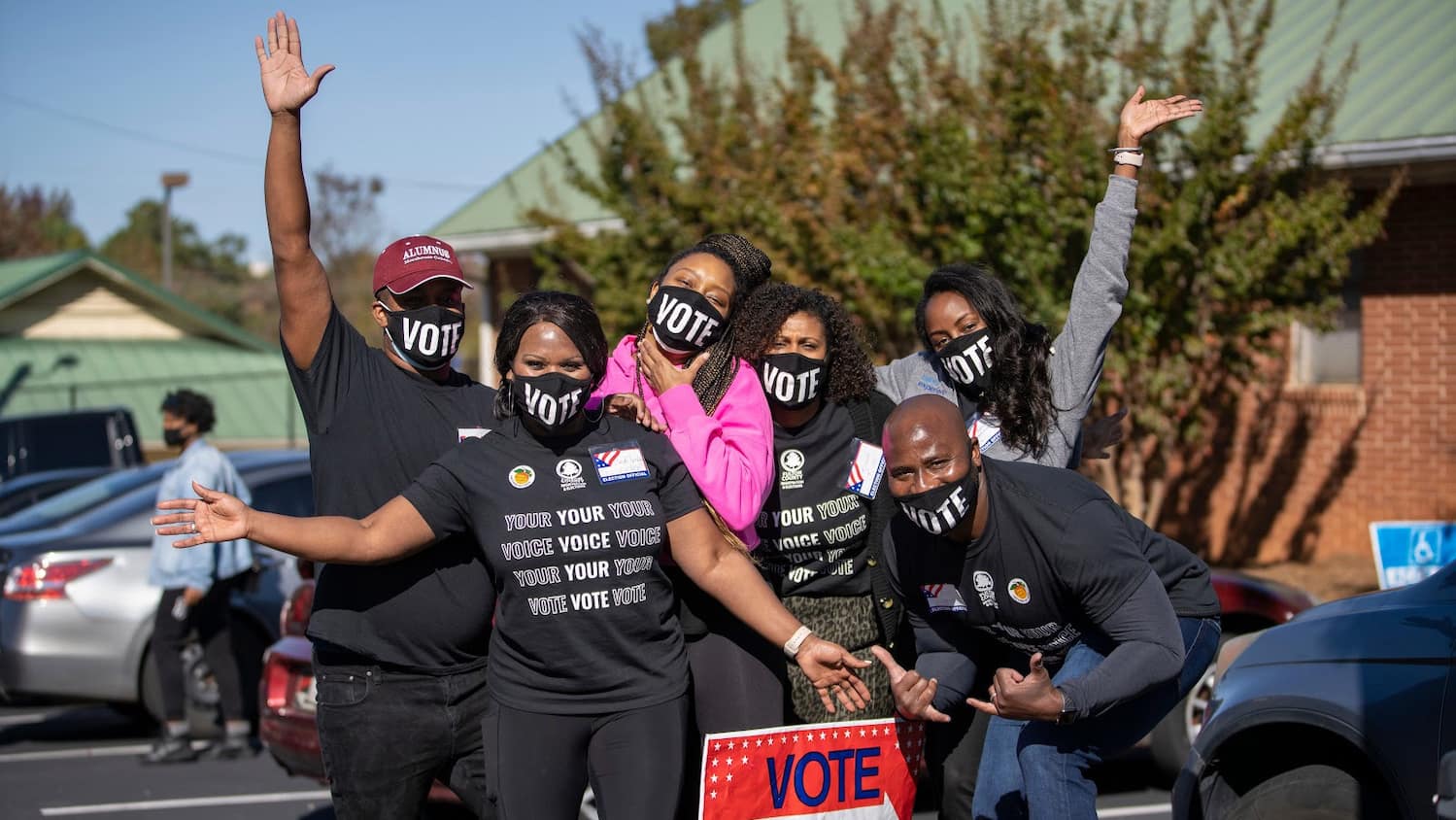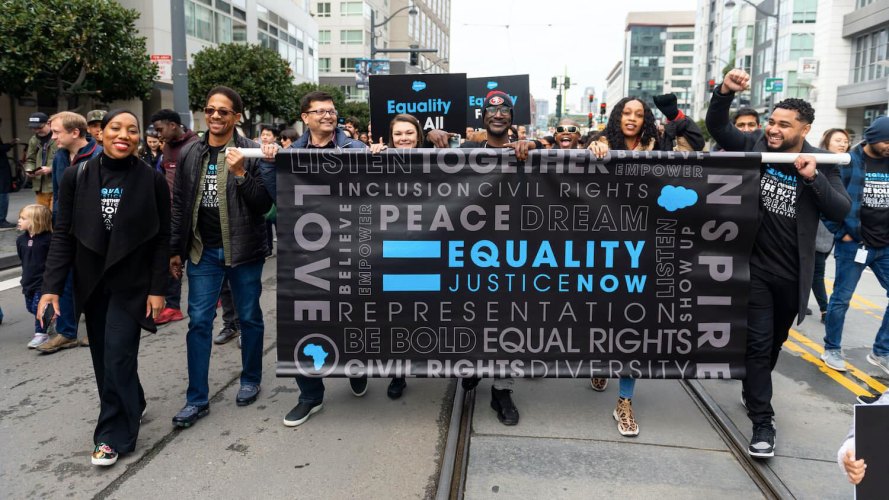The events of 2020 were a wakeup call for many. We were confronted with three crises at the same time; a health crisis, a racial justice crisis, and a leadership crisis that called on business leaders to drive solutions.
February is Black History Month (BHM), where we celebrate all that has been done and must be done, as we strive for a more equal and just society. We honor the work of our ancestors who fought for our futures — so that we could be here.
As the global president of BOLDforce — our employee resource group (ERG) for our Black employees and allies — this month holds a deep significance to me. Coming off the heels of a crisis-laden 2020, there has never been a more urgent time to continue taking action for social good. For companies, BHM is a time to create learning opportunities for employees that might not usually be exposed to our multifaceted Black culture and history.
This Black History Month — in addition to elevating our history, we’re focused on building Black futures. This includes how we celebrate, support, empower, and value Black talent everywhere.
So, why is it important to honor Black History in the workplace?
By being intentional about taking time to learn about our different cultures and histories — we help build more understanding, compassion, and belonging in the workplace. Beyond learning, we have to commit to action. If we want to build a workplace that reflects society, we need to ensure that the employee experience is equitable and inclusive for our Black talent.
The actions can’t start and stop in February, we need to honor Black talent and history all year round. Here are three ways you can do this:
1. Learn the history
Start with yourself. Seek to learn and understand why honoring Black history and culture is important. Black history is American history. Our educational system only teaches us a glimpse of it — there is a lot that was left out and thus, it is up to us to educate ourselves. There are many figures of historical significance in Black culture that are not always spotlighted in the mainstream. For example, in 2016, the movie Hidden Figures shed light on three brilliant African-American women at NASA who were the brains behind one of the greatest operations in history: the launch of astronaut John Glenn into orbit, Heroes like these and many more like them deserve to be honored for the sacrifice and suffering they endured for the sake of racial equality.
Learn about some of our STEM heroes and civil rights leaders often overlooked.
If you are going to buy books on any of these topics, consider supporting Black-owned bookstores.
2. Celebrate and elevate Black talent that exists everywhere
We know there is exemplary Black talent everywhere. We can all use our platform to celebrate and elevate others. Think of ways you can create access, pass the mic, mentor and sponsor, make space, and more.
If you’re a manager, you can do this by hiring and promoting Black talent and making a deliberate commitment to creating an inclusive culture.

3. Volunteer and get civically engaged
Civic engagement is one of the best ways we can support racial equality. It helps us to create systemic change through policy, and carry forward the work of those who’ve fought for civil rights for over half a century.
Organize volunteer activities with your team, centered around empowering the Black community. I’m inspired by our BOLDforce Atlanta team who volunteered to register Black voters and mobilize our community during an important election season.

4. Buy from Black-owned businesses
Finally, to truly drive racial equality, we need to close the racial wealth gap. We can all do this by buying from Black-owned businesses. If you have a supplier program at your company, be sure to diversify your supplier list and include Black-owned businesses.
There is still work to be done on this path toward equality, using our platform to elevate voices of racial equality is only one stop along this path. Last year, we established the Racial Equality and Justice Taskforce to help drive systemic change in our workplace and community, and we will continue to provide updates on our equality efforts. Learn more at Salesforce.com/Equality




























